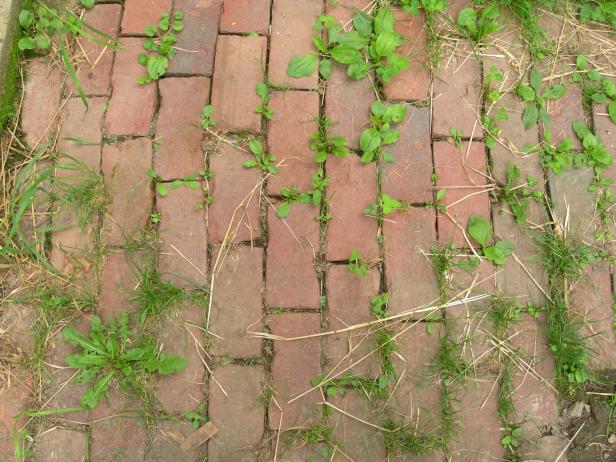Make Your Own 8 Best Natural Methods for Eco-Friendly Weed Killer
Eco-Friendly Weed Killer in today’s world, environmental awareness has become very important for every human being; hence, finding natural solutions to environmental problems arising from everyday activities has become increasingly important, and people are also concerned about this problem. In this context, the problem of eco-friendly weed killers related to the environment is very important.

What is Eco-Friendly Weed Killer and Why is Important
Weeds are unnecessary plants that grow on their own anywhere and absorb the nutrition of the fertile land, whether it is a crop, forest or plants in your garden. They stop their growth and also invite pests and diseases.
No matter how big and experienced a gardener you are, you will always have to deal with the persistent problems of pests and weeds. Many people use chemical-based herbicides, which are very harmful to the environment, pets, and children, and if used excessively or incorrectly, they can cause great harm to the environment. There is a lot of awareness among many people, and they are also serious about this situation, that is why many gardeners are concerned about the environment and are keen to know about Eco-Friendly Weed Killer as an eco-friendly and safe solution.
Although getting rid of weeds is not easy, the best way to do this is to remove them before they grow more seeds. But doing so means removing them with your hands, which is laborious and time-consuming. That’s why many people use herbicides and herbicides containing chemicals.

Understanding the Need for Eco-Friendly Weed Control
First, we need to understand why it is important to consider eco-friendly herbicides and why it is important to choose a natural solution. For decades, herbicides have often used toxic chemicals like glyphosate, which contaminate soil and water sources and harm beneficial insects and wildlife. So by choosing Eco-Friendly Weed Killer options, you can protect your health and contribute to the preservation of our environment.
There are some eco-friendly and homemade solutions for weed killers:
Vinegar: Nature's Weed Professional Killer:
Among home remedies, vinegar is an easily available, low-budget, effective herbicide that can kill unwanted vegetation. Vinegar has an acetic acid property, which is suitable for killing weeds easily.
Vinegar contains about 5% acetic acid and will work well on weeds that have just started to grow; although this is not a permanent solution to eliminating weeds, there are other methods you can try.
Mix equal parts white vinegar and water in a shower bottle to make a homemade vinegar-based weed killer. To improve this solution, add a few drops of dish cleanser, then spray the mixture directly onto the weeds. Within a few days, you will see the weeds shrinking and disappearing, leaving your nursery looking spotless, and all the weeds will also be uprooted.
Baking Soda: A Safe and Viable Weed Control System:
Baking soda is a staple product used in the home kitchen. It is not only for baking but is also counted as a strong weed killer!
Because the high pH level in it dries out the weeds, causing them to wither and die.
It’s named the Baking Soft Drink Weed Executor, and to make, one teaspoon of Baking Soft Drink is mixed with two cups of water and a few drops of liquid dish
cleanser, mixing the mixture until the Baking Soft Drink Until the drink is completely mixed in, then, at that point, transfer it to a shower bottle and spray the solution wherever you see weeds in your garden until the weeds are gone.
Boiling Water: Heatwave Weed Terminator:
Like hot water affects our body’s cells, believe it or not, boiled water can be a simple but effective weed killer. You can destroy their cell structure by pouring boiling water directly onto weeds, effectively killing them.
This technique is useful for weeds growing in deep cracks or paths. Use caution when handling boiling water to avoid burns, and target only the weeds you want to eliminate.
Salt: Natural Weed Barrier:
As you know, salt is a natural absorbent, which means it absorbs moisture well and dehydrates plants, so it is used as a very important weed killer.
If you want to use this method, you will need to add enough salt to hot water to make a salt solution until the salt dissolves.
Pour the solution into a spray bottle and use it directly on weedy plants, taking care to avoid desirable plants, keep in mind that the salt can remain in the soil, so use this method sparingly and avoid areas where you are thinking of growing other plants.
Essential Oils: Aromatic Weed Control Solution:
There are many home remedies for controlling weeds, and one of them involves using essential oils. Many oils have herbicidal properties that can effectively suppress weed growth while leaving a pleasant fragrance.
Essential oils such as clove, peppermint, and citrus oils are particularly effective in eliminating weeds. To make an essential oil weed killer, you need to mix a few drops of essential oil with water and a small amount of liquid soap. Thoroughly mix the solution and then spray it directly onto the weeds. Keep reapplying the solution as needed until the weeds are completely eliminated.
Corn Gluten Meal: Stopping Weeds Before They Grow:
This is an old but working technique called corn gluten meal. Corn gluten meal is a natural byproduct of corn processing and acts as a pre-emergent herbicide, meaning it prevents weed seeds from germinating in the first place.
While it won’t kill existing weeds, it does go a long way in preventing future weed growth when you apply corn gluten meal to your soil.
All you need to do is spread a thin layer of corn gluten meal on the soil surface in early spring to give weeds a chance to grow, water the area thoroughly to activate the corn gluten meal, and then sit back and enjoy a weed-free garden. Enjoy it.
Companion Planting: Nature's Weed Management System:
Companion planting involves strategically placing certain plants together to enhance growth and deter pests, including weeds.
By selecting companion plants that naturally repel weeds or inhibit their growth, you can create a natural weed management system in your garden. Popular weed-repellent companion plants include marigolds, basil, and lavender.
Integrate these plants throughout your garden beds to suppress weed growth and promote a healthy, vibrant garden ecosystem.
Mulching: A Protective Blanket for Your Garden:
Mulching is an effective and adopted method to control weeds, which helps in maintaining soil health and moisture.
By applying a layer of organic mulch, such as wood chips, straw, or shredded leaves, to your garden, you can effectively suppress weeds and prevent their growth.
Additionally, mulch will help regulate soil temperature, retain moisture, and provide essential nutrients to your plants.
Homemade Weed Killer Recipe: DIY Bliss:
If you make your eco-friendly weed killer from household ingredients, it is not only environmentally friendly but also perfect for your garden.
By experimenting with a variety of ingredients and concentrations, you can tailor your Eco-Friendly Weed Killer to your specific needs and preferences.
Whether you prefer the simplicity of vinegar and salt or the aromatic allure of essential oils, there is a homemade weed-killer recipe for everyone.
When you set out on a journey to a lush, weed-free garden, you will find yourself connecting with nature which not only brings you joy but also positivity.
Conclusion
In conclusion, whenever you do any work yourself, you always feel positive and making eco-friendly weed killer yourself not only reduces the harm to the environment but also provides you with a pure environment and is a simple method of weed management.
And it is also an effective method. By harnessing the power of natural ingredients like vinegar, baking soda and essential oils, you can achieve excellent results without resorting to harmful chemicals.
Whether you’re dealing with weeds in your garden, street, or patio, these natural methods provide a safe and sustainable solution to weed control.
Embrace the green revolution and make your own eco-friendly weed killer today!
Frequently Asked Questions (FAQ's)
Q. How often should I apply homemade weed killer?
A. For best results, apply homemade weed killer as soon as you notice weed growth, and repeat as needed until the weeds are eliminated.
Q.Will homemade weed killer harm my pets or wildlife?
A. Most homemade weed killer recipes are safe for pets and wildlife when used as directed. However, exercise caution when using ingredients such as essential oils, as some pets may be sensitive to certain fragrances
Q. Can I use homemade weed killer on my lawn?
A. Homemade weed killer can be used on lawns, but it’s essential to avoid applying excessive amounts, as certain ingredients such as salt or vinegar may damage grass if used in high concentrations.
Q. Are there any environmental benefits to using homemade weed killer?
A. Yes! Homemade weed killer eliminates
